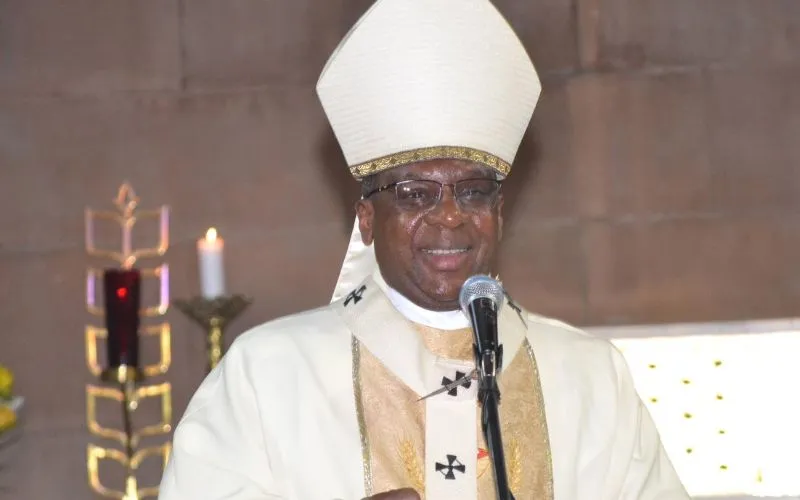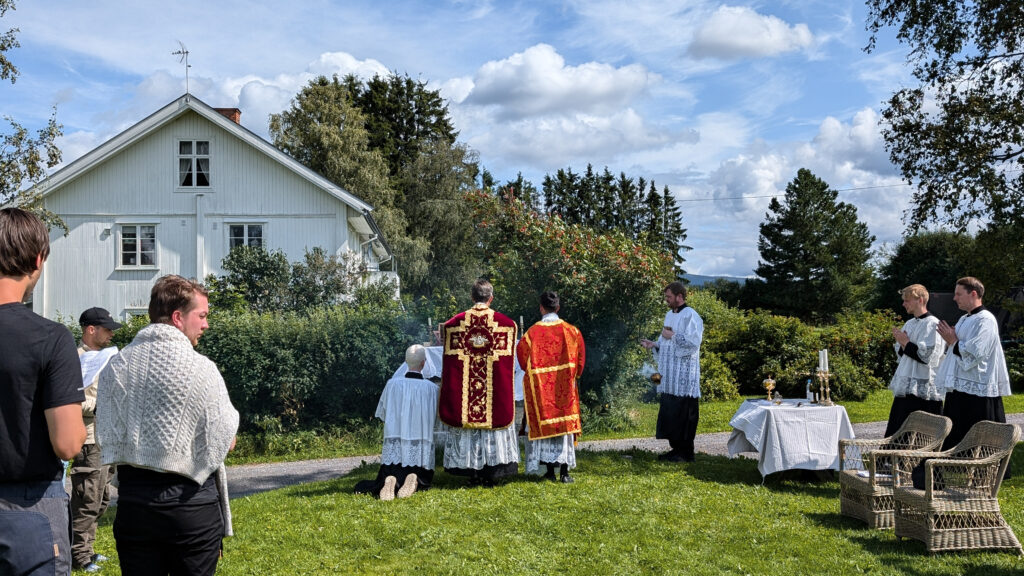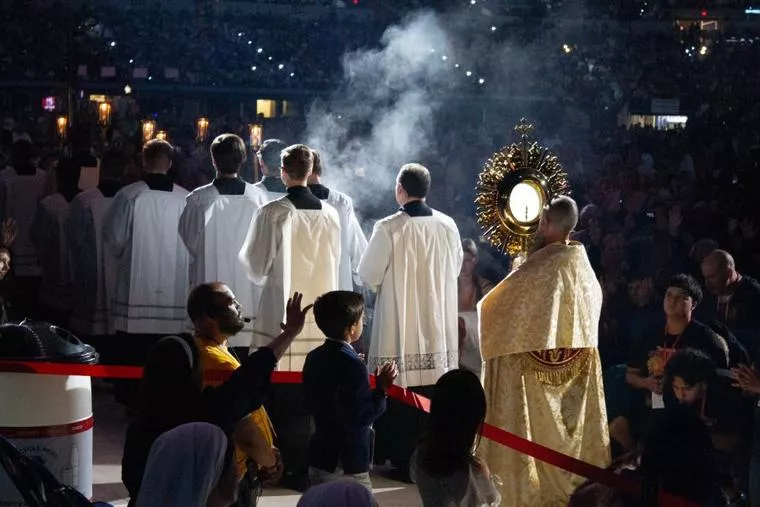Why Archbishop in South Africa Thinks Synod on Synodality calls for “radical shift” in Church Model
By Silas Isenjia
The Synod on Synodality is a call to move from one model of the Church to another, Archbishop Dabula Mpako of South Africa’s Pretoria Archdiocese who participated in the first session of the ongoing synod has observed.
Speaking to Catholic communicators in a webinar last week, Archbishop Dabula Mpako shared that he had had “continued engagement and reflection on the Synod process” since the October 4-29 meeting in Rome last year.
Archbishop Mpako said that through the Synodal process, Pope Francis has set the entire Catholic Church on the path of rediscovering the nature of the Church that God expects in the third millennium.
“What is fundamentally at stake in this process is not so much discussing this or that thing, introducing this or that new method, or implementing this or that strategy,” the South African Archbishop said at the webinar that members of the Inter-Regional Meeting of the Bishops of Southern Africa (IMBISA) organized in partnership with the Southern African Catholic Bishops’ Conference (SACBC).
“In reflecting on this Clarion call by the Holy Father, I have realized that what is being called for is a radical shift that fundamentally involves moving from one model of church to another,” he said.
He emphasized that the call by the Holy Father entails a shift “from the model of the Church that became dominant in the second millennium to one in the third millennium centered on synodality.”
Archbishop Mpako explained that in the second millennium, the Church was understood as a hierarchical and clerical institution, with a division between the ‘teaching Church’ made up of the clergy and the ‘receiving Church’ made up of the lay faithful.
He found it unfortunate that many Catholics including the Clergy, the Religious, and the laity grew up in the second Millennial Church that had a top-bottom kind of hierarchy with the Clergy being at the center.
“We are called to a new model of church…that is understood first and foremost as people of God who, by a common baptism, are made members of the church with equal dignity, and who share equally in core responsibility for the life and mission of the church,” he said.
Archbishop Mpako said Synodality, just like Vatican II, advocates for the Church that is “bottom up”. He said Synodality “inverts the pyramid and puts the Laity at the top and then the hierarchy is put in the center of that.”
The Archbishop said Synodality is advocating for a theological model of hierarchy that is “inductive” and entails “journeying together towards the fullness of the kingdom and discerning the signs of the times asking ourselves, what the spirit is telling us as we move forward.”
“It is an inductive method that is open to change to growth and it seems to me that is the most fundamental meaning of this process of the synod on synodality. That we are asked to migrate, move from that old model of church to a new model of church,” he said.
From this, Archbishop Mpako said that he is not only able to appreciate but he also understands the source of resistance from “certain circles within the church.” He said, “This is nothing short of a paradigm shift from one worldview to a different worldview, as far as the church is concerned.”
Meanwhile, Archbishop Mpako has proposed the application of synodality to address societal challenges outside the Church.
He says that even though, historically, synodality has been associated with the church, the concept has implications and applications that reach beyond church life.
“Synodality, as you know, is a concept historically found and used in church terminology. The concept that has gained momentousness in the Catholic Church in the context of the current synod on synodality. But even though historically it has been associated with the church, I have concluded that it presents a vision that has implications and applications which reach far beyond the confines of church life,” he said.
The Catholic Archbishop who started his Episcopal Ministry in August 2011 in South Africa’s Queenstown Diocese said that Synodality can impact the church positively by fostering peace and unity in the entire world.
“When properly understood and consciously appropriated, Synodality has the potential to promote and foster the right to interpersonal relations among various groups and internationally contribute to a global culture of peaceful coexistence, based on upholding the common good of all,” he said.
He said that Synodality has far-reaching ecumenical implications since it is “a common challenge that concerns all believers in Christ”.
Archbishop Mpako said that Synodality also has implications in the promotion of the common good of all as it has implications for both socio-political life and economic life.
“As a call to service, the churches are not done, life presents itself as service in the promotion of social, economic, and political life of all peoples under the banner of justice, solidarity, and peace,” he said.




